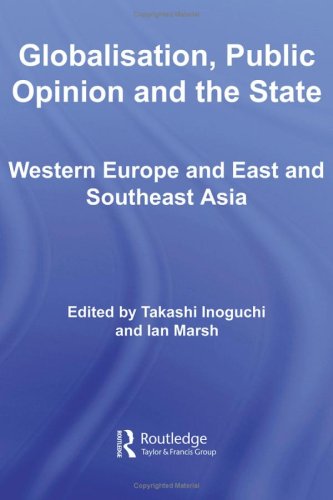

Most ebook files are in PDF format, so you can easily read them using various software such as Foxit Reader or directly on the Google Chrome browser.
Some ebook files are released by publishers in other formats such as .awz, .mobi, .epub, .fb2, etc. You may need to install specific software to read these formats on mobile/PC, such as Calibre.
Please read the tutorial at this link. https://ebooknice.com/page/post?id=faq
We offer FREE conversion to the popular formats you request; however, this may take some time. Therefore, right after payment, please email us, and we will try to provide the service as quickly as possible.
For some exceptional file formats or broken links (if any), please refrain from opening any disputes. Instead, email us first, and we will try to assist within a maximum of 6 hours.
EbookNice Team

Status:
Available0.0
0 reviewsThis is first integrated book-length account of citizen responses to the new global order. Based on a comprehensive survey, administered at the end of 2000, in nine European and nine Asian countries, this book demonstrates the diverse responses to globalization, within, and between, two of the world's major – and most globally integrated – regions.
Globalization, Public Opinion and the State is a pioneering empirical study, drawing on 18,000 interviews across these 18 European and Asian countries supported by the Japanese Ministry of Education. The Asian-Europe Survey is one of the largest of its kind ever conducted, and provides the book with a wealth of novel data on public opinion and social attitudes that identify the linkages between national/regional policy responses and the political and policy orientations of the publics affected.
The book uses theoretical insights to situate these public responses and reactions to globalization; and it addresses one question in particular: do nation states matter in how citizens come to view regional and global engagement? Rather than offering another theory about globalization, this book presents much-needed empirical findings that help us decide between arguments about the public impact of globalization cross-nationally. This book breaks new ground as there no other comprehensive study in this field.